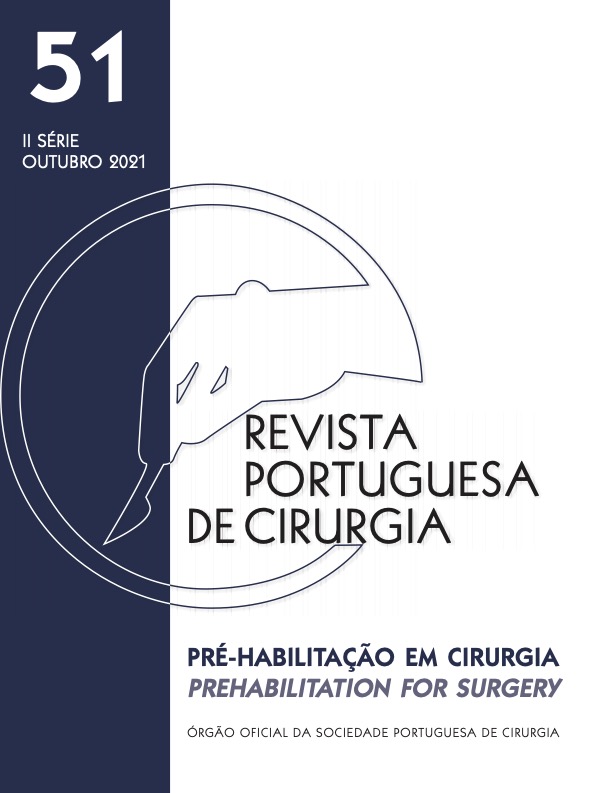THE TIME HAS COME FOR A COMMUNITY AND HOME-BASED PREHABILITATION: NARRATIVE OF AN IMPLEMENTATION PROCESS
DOI:
https://doi.org/10.34635/rpc.937Keywords:
community, general practitioner, home-based, innovation, outcomes, patient-balanced, perioperative care, prehabilitation, prehabilitation clinic, risk assessment, surgeryAbstract
Optimizing patients’ condition before surgery, bringing patients to their best fitness status, has always been tried by surgeons, even if it was in stochastic models. Setting up a prehabilitation program should take into account patients and their circumstances. To ensure success, programs should be personalized (patient balanced) and aim to ensure patients’ regular support as well as easy and effective contact with the healthcare team. A two-platform clinic was planned based on hospital and community facilities and health care specialists. A wide range of languages and communications systems needed to be merged and operationalized. The governance of this project is a demanding and forever ongoing process. The aim of this paper is to provide a narrative of the why and the how we are setting a community and home-based personalized prehabilitation clinic, and to give a reflective analysis of the process of gathering the right associates to implement this innovation of changing the ways and the places for prehabilitation to happen.
Downloads
References
2. Durrand J. SSJ, Danjoux G. Prehabilitation. Clinical Medicine – Perioperative Care. 2019; Vol 19, 6:458-64.
3. Minnella EM, Loiselle S, Agnihotram RV, Ferri LE, Carli F. Effect of Exercise and Nutrition Prehabilitation on Functional Capacity in Esophagogastric Cancer Surgery: A Randomized Clinical Trial. JAMA Surg. 2018; 153(12):1081–1089.
4. Carli F. Prehabilitation for the Anesthesiologist. Anesthesiology. 2020; 133:645–652.
5. Berkel AEM BB, Kotte H., Weltevreden P., Jongh FHC, et.al. Effects of Community-based Exercise Prehabilitation for Patients Scheduled for Colorectal Surgery with High Risk for Postoperative Complications: Results of a Randomized Clinical Trial. Ann Surg. 2021.
6. Hijazi Y. GU, Aziz O. A systematic review of prehabilitation programs in abdominal cancer surgery. Int J Surgery. 2017; 39, 156-162.
7. Molenaar et al. Prehabilitation, making patients fit for surgery – a new frontier in perioperative care. Innov Surg Sci. 2019; 4(4): 132–138.
8. Carli F., Baldini G.; Feldman L.S., Redesigning the Preoperative Clinic. From Risk Stratification to Risk Modification. JAMA Surg. 2020.
9. Fernandes ADV, Moreira-Gonçalves D, Come J, Rosa NC, Costa V, Lopes LV, da Costa PM, Santos LL. Prehabilitation program for African sub-Saharan surgical patients is an unmet need. Pan Afr Med J. 2020 Jun 3;36:62. doi: 10.11604/pamj.2020.36.62.21203. PMID: 32754289; PMCID: PMC7380873.
10. Lewin K. Field Theory in Social Science. Harper and Row, New York. 1951.
11. Plant R. Managing Change and Making It Stick. Harper Collins Publishers, London. 1995.
12. Fernandes A., Rodrigues J., Antunes L., Lages P., Santos C., Gonçalves D., Costa R., Sousa J., Dinis-Ribeiro M., Lara Santos L. Development of a preoperative risk score on admission in surgical intermediate care unit in gastrointestinal cancer surgery. Perioperative Medicine (2020) 9:23.
13. Nolan T. Accelerating the Pace of Improvement – An Interview with Thomas Nolan. Interview by Steven Berman. Journal of Quality Improvement. 1997; 23(4):217-22.
Downloads
Published
Issue
Section
License
Para permitir ao editor a disseminação do trabalho do(s) autor(es) na sua máxima extensão, o(s) autor(es) deverá(ão) assinar uma Declaração de Cedência dos Direitos de Propriedade (Copyright). O acordo de transferência, (Transfer Agreement), transfere a propriedade do artigo do(s) autor(es) para a Sociedade Portuguesa de Cirurgia.
Se o artigo contiver extractos (incluindo ilustrações) de, ou for baseado no todo ou em parte em outros trabalhos com copyright (incluindo, para evitar dúvidas, material de fontes online ou de intranet), o(s) autor(es) tem(êm) de obter, dos proprietários dos respectivos copyrights, autorização escrita para reprodução desses extractos do(s) artigo(s) em todos os territórios e edições e em todos os meios de expressão e línguas. Todas os formulários de autorização devem ser fornecidos aos editores quando da entrega do artigo.



